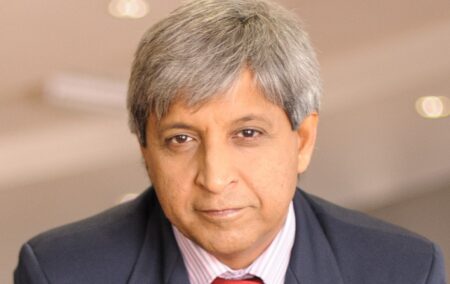The Institute of Race Relations (IRR) finds itself in agreement with almost all of the recommendations Professor Adam Habib’s twitter feed directed towards the leadership of the African National Congress (ANC) in the run-up to the party’s recent 108th anniversary celebration in Kimberley.
The Vice-Chancellor of the University of the Witwatersrand is quite right when he suggests that President Ramaphosa should start by recognising that the country is in a deep economic crisis and that solutions require a nuanced economic policy agenda.
We cannot object to the thrust of Habib’s 15 specific recommendations, although we could raise a few quibbles with some of the detail. We are not convinced, for instance, that strikes by the teaching profession in schools and universities should simply be outlawed. But most of Habib’s suggestions centre on education and governance reforms which we wholeheartedly endorse.
His suggestions that government fixes school discipline (rather than changing the curriculum), enhances vocational training opportunities; differentiates universities (between undergraduate teaching and postgrad/research foci); reemphasises professional competence criteria in the police and foreign service; proceeds urgently with prosecutions of corrupt officials and politicians; and that violence and extremism be faced down, are consistent with arguments made by the IRR over many years.
We particularly like his suggestion, up front in his twitter feed, that the country requires a ‘heterodox’ economic agenda. This is precisely what the IRR has advocated for some years now – see for instance our New National Growth Strategy: A Plan to Secure an Economic Turn-Around over the Years 2016 – 2018 (https://irr.org.za/reports/occasional-reports/files/sairr_national-growth-stategy_web_200516.pdf). Although our recommendations were made in 2016, they remain as relevant today as they were at the time, if not more so.
But what surprised us is that as eminent a scholar as Professor Habib should misunderstand our position so completely. After (appropriately) dismissing the ‘recommendations of the Radical Economic Transformation faction’, he tweeted that ‘neither is the alternative plan from the IRR appropriate. A market response that only emphasises growth may get the economy growing but it will accelerate inequality. As some of us warned in the 1990s, this will polarise society, create social unrest and then undermine growth itself’.
Habib appears to think the IRR are rigid market fundamentalists. But an examination of our policy positions shows exactly the nuance and heterodoxy he advocates.
Our suggested plan does emphasise growth but so too does it prioritise increasing employment and opening access to the disadvantaged. It approves the massive post-2001 rollout of social grants, not least because there is no short-term alternative if we are truly concerned about the welfare of the marginal and disadvantaged in our society. Indeed, one of the reasons economic growth is imperative is that its absence reduces the fiscal space available for social grants. We argue that ‘the state will still play an important role in improving the living standards of the disadvantaged’ and that ‘it may have to do this for two or three decades to come’ (https://irr.org.za/reports/occasional-reports/files/sairr_national-growth-stategy_web_200516.pdf p. 15). At the same time, the IRR does not suggest that welfare is an adequate substitute for employment and strongly advocates growth to generate more jobs and draw more people into the labour market.
The nuance and indeed heterodoxy of the IRR’s position on growth, inequality and access is most apparent in our suggestions about how this should be done. Our analyses show that Black Economic Empowerment (BEE) and Employment Equity policies have failed to reach 85 percent of the population. But they have provided a smokescreen for elite enrichment and increasing inequality while deterring the investment needed to get the economy growing again. We have suggested an alternative policy, Economic Empowerment for the Disadvantaged (EED) which directly addresses the problem.
EED selects its beneficiaries on a socio-economic basis. It rewards investors for expanding opportunities through direct investment, job creation, contributions to tax revenue and export earnings, topping up venture capital funds, appointing staff using a ‘wide’ definition of ‘merit’ (including disadvantage), entering into private-public partnerships to improve education, healthcare and housing, and expanding economic infrastructure.
This is a paradigm shift which no longer by-passes the poor. But it uses carrots rather than sticks to encourage and reward the contributions made by business. Against the caricature of the IRR as rigid market fundamentalists, this is an acknowledgement of the importance of state intervention to shape market outcomes. In referring to this caricature, Professor Habib has quite possibly mixed up the IRR’s position with that of other advocacy groups. In truth there is more common ground between the professor’s recommendations and the policies advocated by the IRR than there are differences. Indeed, we find Habib’s 15 recommendations consistent with enhancing longer-term growth.
But we do insist that the IRR’s position is fairly represented. We do not make (and never have made) a fetish of GDP numbers. We understand growth to be an output of many social and political factors as well as economic variables. Our ambition is to achieve growth by broadening participation and speeding up the rate at which this happens. We suspect Professor Habib will have no problem with that end.
[Picture: The University of the Witwatersrand, https://en.wikipedia.org/w/index.php?curid=61288521]
If you like what you have just read, become a Friend of the IRR if you aren’t already one by SMSing your name to 32823 or clicking here. Each SMS costs R1. Terms & Conditions Apply.

